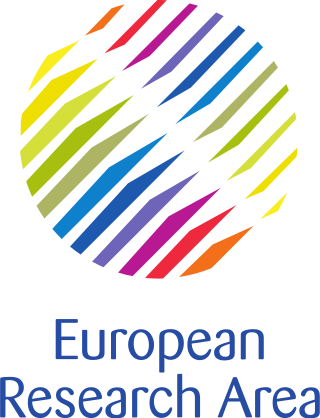Related Research Articles

Transport in Europe provides for the movement needs of over 700 million people and associated freight.

Neelie Kroes is a retired Dutch politician of the People's Party for Freedom and Democracy (VVD) and businessperson who served as European Commissioner from 22 November 2004 to 1 November 2014.

The Government of Singapore consists of several departments, known as ministries and statutory boards in Singapore. Ministries are led by a member of the Cabinet and deal with state matters that require direct political oversight. The member of the Cabinet heading the ministry is known as the minister, who is supported by a junior minister known as minister of state in Singapore. The administrative management of the ministry is led by a senior civil servant known as permanent secretary.

The Joint Research Centre (JRC) is the European Commission's science and knowledge service which employs scientists to carry out research in order to provide independent scientific advice and support to European Union (EU) policy.

The European Research Area (ERA) is a system of scientific research programs integrating the scientific resources of the European Union (EU). Since its inception in 2000, the structure has been concentrated on European cooperation in the fields of medical, environmental, industrial, and socioeconomic research. The ERA can be likened to a research and innovation equivalent of the European "common market" for goods and services. Its purpose is to increase the competitiveness of European research institutions by bringing them together and encouraging a more inclusive way of work, similar to what already exists among institutions in North America and Japan. Increased mobility of knowledge workers and deepened multilateral cooperation among research institutions among the member states of the European Union are central goals of the ERA.
The Parliamentary Advisory Council for Transport Safety (PACTS) is a registered charity. For much of its history, it was also an All-party parliamentary group of the UK parliament. In 2016, following changes to parliamentary rules, PACTS the charity was separated from the APPG and PACTS now provides the secretariat to the Transport Safety APPG. PACTS charitable objective is: To protect human life through the promotion of transport safety for the public benefit. Its annual accounts and trustees review of the year can be accessed via the Charity Commission’s website.
EURAB was the European Research Advisory Board from 2001 to 2007. Its successor – since 2008 – is the European Research Area Board (ERAB).
The European Organisation for Civil Aviation Equipment (EUROCAE) is an international organisation that deals exclusively with aviation standardisation, for both airborne and ground systems and equipment. It was created in 1963 in Lucerne, Switzerland by a decision of the European Civil Aviation Conference as a European forum focusing on electronic equipment for air transport. The organisation's offices are based in Saint-Denis, France near Paris.
Stephen Glaister is Emeritus Professor of Transport and Infrastructure at the Department of Civil & Environmental Engineering, Imperial College London, where he was also director of the Railway Technology Strategy Centre.
The Advisory Council for Aeronautics Research in Europe (ACARE) is a European advisory body that aims to improve the competitiveness and sustainability of the European Union in the field of aeronautics. It is a public-private partnership between the Directorate-General for Transport and Energy of the European Commission and industry leaders. ACARE was launched at the Paris Airshow in June 2001 and has about 40 members.
The European Rail Research Advisory Council (ERRAC) is a European Seventh Framework Programme initiative to improve the competitive situation of the European Union to revitalise the European rail sector.
The Single European Sky ATM Research 3 Joint Undertaking is an institutionalised European public-private partnership, established in 2021, to accelerate through research and development the delivery of the Digital European Sky, as part of the SESAR project. Initiated in 2004, the SESAR project is the technological arm of the EU's Single European Sky initiative to integrate EU Member States' ATM systems. Bringing together the EU, Eurocontrol, and more than 50 organisations covering the entire aviation value chain, including drones, this European partnership is investing more than EUR 1.6 billion between now and 2030 to accelerate, through research and innovation, the delivery of an inclusive, resilient and sustainable Digital European Sky.
Transport Research Arena (TRA) is a conference on transport and mobility in Europe. It was initiated in 2006 and takes place every two years in a different European city. TRA is co-organised by the European Commission and supported by the European Technology Platforms ERTRAC, ERRAC, WATERBORNE as well as CEDR and ALICE, ETRA and ECTP.
The Department of Scientific and Industrial Research was a department of the British Government responsible for the organisation, development, and encouragement of scientific and industrial research. At the outbreak of the First World War "Britain found ... it was dangerously dependent on enemy industries". At the request of the Board of Trade, the Board of Education prepared a White Paper under the chairmanship of Sir William McCormick. The DSIR was set up to fill the roles that the White Paper specified: "to finance worthy research proposals, to award research fellowships and studentships [in universities], and to encourage the development of research associations in private industry and research facilities in university science departments. [It] rapidly assumed a key role in coordinating government aid to university research. It maintained these roles until 1965. The annual budget during its first year, 1915, was £1,000,000.

The Research Data Alliance (RDA) is a research community organization started in 2013 by the European Commission, the American National Science Foundation and National Institute of Standards and Technology, and the Australian Department of Innovation. Its mission is to build the social and technical bridges to enable open sharing of data. The RDA vision is researchers and innovators openly sharing data across technologies, disciplines, and countries to address the grand challenges of society. The RDA is a major recipient of support in the form of grants from its constituent members' governments.
The Graphene Flagship is a European Union scientific research initiative. With a budget of €1 billion, it is one of the large scale initiatives organized by the Future and Emerging Technologies program, along with the Human Brain Project and the Quantum Technologies Flagship. Through a combined academic-industrial consortium, the research effort attempts to develop technologies which range from basic research to production and system integration, using the unique properties of graphene. There are some critics of this and similar initiatives, arguing that the funding of graphene-related research and innovation is disproportional to estimates of industrial potential. However, advocates for the Graphene Flagship note the merits of the initiative’s wide-ranging, applications-focused research, and the potential for graphene to catalyze innovation and economic growth across sectors and interest areas including biomedical research and health, transport, water safety, energy efficiency, battery and semiconductor development, wearable electronics, digital communications, sustainability and the environment, and space exploration.
Zissis Samaras is a Greek mechanical engineer and a professor of thermodynamics at Aristotle University of Thessaloniki, where he began his academic career in 1989.